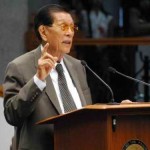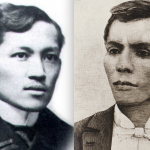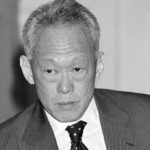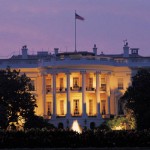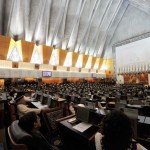
There’s been a lot of anger expressed regarding Janet Nápoles, her daughter Jeane, their lavish lifestyles, and the Pork Barrel scam that funded it all. Everyone seems to be screaming about the need to abolish the Pork Barrel, which today bears the official name “Priority Development Assistance Fund (PDAF).
But before jumping into the “abolish the Pork Barrel” bandwagon, it is necessary for Filipinos to first understand why the Pork Barrel system exists, and why it was institutionalized the way it has been in the Philippines. Understanding this will allow us to see if merely abolishing the Pork Barrel fund will actually work, or whether it is actually part of a wider set of systemic problems that stem from a common set of root causes.
Pork Barrel was intended to “address” certain Problems
The Pork Barrel fund didn’t come about just because some politicians decided it was cool to have loads of cash at their discretion. Rightly or wrongly, it was actually originally intended to serve as an immediate palliative remedy or “band-aid” to fix some key symptomatic problems caused by deeper systemic root causes inherent in the overall Philippine “System.”
The following are the problems that the institution of the Pork Barrel intends, rightly or wrongly, to fix:
1. Widespread poverty and the perceived need to “assist the poor”
There are just too many poor people all around the Philippines asking for assistance. The politicians long ago who thought of institutionalizing the Pork Barrel did so because they felt that a certain discretionary “special assistance fund” would give legislators the necessary funding they feel they need in order to spearhead projects that could “assist” the needy people in areas they represent in order to gain goodwill and justify the reason for their elected positions’ existence. Apparently, far too many Filipino leaders didn’t think that legislators are supposed to concentrate on legislation – i.e.: passing new relevant laws and/or repealing obsolete ones, or that representing their constituents’ interests in the legislature was what they signed up for.
It seems more like their idea was that all elected positions are somehow “executive” and are supposed to have projects (both soft projects such as scholarships as well as “infrastructure projects”) that would create visibility for them even if the elected positions they ran for are purely within the legislative branch. Hadn’t they heard of “Meet the People” or “Townhall” Sessions that happen where representatives regularly meet with the people they represent in their own districts for Q&A’s and thus gain the necessary input they need for privilege speeches and for discussions and debate in the legislature? (Then again, “Meet the People” or “Townhall” Sessions are how things work in a Parliamentary System)
The problem of massive poverty and the mendicant attitude that had been nurtured in the Philippines has caused politicians to think that it is absolutely necessary for them to dole largesse out to the people in their districts in order to placate the poor and their demands/requests for assistance. This is a “pull factor” in the sense that it is oftentimes many ordinary people who directly or indirectly beg for the Pork Barrel fund to continue on. Without the Pork Barrel fund, they feel they’ll be helpless.
Well, instead of handing out dole-outs, why don’t legislators push for ways to create real jobs in their communities? (More on the details of how to do that later in this article) After all, if jobs were plentiful, then people wouldn’t be asking for dole-outs in the first place. If people weren’t asking for dole-outs because they had jobs, then politicians wouldn’t need to hand-out pork barrel largesse which are funds they get from taxpayers.
But because there aren’t that many jobs, so many Filipinos are poor and always asking for money and assistance, the pork barrel fund serves as an institutionalized means for politicians to elicit a debt of gratitude from among the people who benefit from their largesse.
2. Economic Disparity between the Capital versus the Countryside
Remember what the original name of the Pork Barrel fund was before it was called the PDAF (Priority Development Assistance Fund)? Answer: Countrywide Development Fund
In other words, part of the intention for the Pork Barrel was to “distribute funds from the national coffers to localities in the countryside.” In defense of the Pork Barrel fund, you might have read comments about the need to “assist local communities through special funding” or “redistribute wealth to the rest of the country through various local projects.”
The problem is that those “local projects” often show up in the form of basketball courts or sponsorships in local town fiestas. Very often, due to the discretionary nature of the fund, politicians use the fund to reward supporters or buy the support of many others.
Clearly, using the Pork Barrel does not develop the countryside. It simply makes people in the countryside more likely to develop a mendicant attitude of dependence on dole-outs.
3. Need for the Executive to get the Legislature’s Cooperation
The Philippines, sad to say, uses a Presidential System. And Presidential Systems feature a separation of powers where the Legislative and Executive are distinct entities who are meant to act as a “check and balance” against each other.
In theory, the intentions in separating the legislative and executive seem good, but in actual practice, this has resulted in widespread failure. Countless world-renowned political science PhDs from the Ivy League and the world’s most respected universities have separately studied the phenomenon over and over again and the same observation keeps popping up: Presidential Systems, thanks to the separation of powers between legislative and executive, tend to be unstable and prone to gridlock.
The Executive may want to do something, but the Legislature may block it. The Legislature may want to do something, but the Executive may block it. That clash between the two branches is called GRIDLOCK. And Gridlock is wasteful and unproductive.
As the Philippines is a developing nation that can ill-afford delays and showstoppers caused by gridlock, many leaders in the past sought a means of mitigating this debilitating feature of the Presidential System. They needed a means for the Executive (aka “The Office of the President”) to be able to control, entice, cajole, and buy the legislature in order to get them cooperating.
This became the key rationale for institutionalizing the Pork Barrel fund. Without the pork barrel fund, the Executive would simply be unable to get the legislature agreeing with it, and both branches could end up going in different directions. Surely, everyone understands this to be a disaster.
Sadly, the palliative remedy that is the Pork Barrel which was originally envisioned so that the executive could get the legislature’s cooperation has spawned a lot more evil side-effects than benefits.
All of the enumerated issues above serve as either pull (or demand from the People) or push (or supply from the State) factors which perpetuate the existence of the Pork Barrel fund. Simply removing the “supply” by abolishing the pork barrel fund will not work, since the demand will continue. Cutting off supply without finding ways to reduce demand in the first place will mean that future leaders and politicians will very likely end up reviving the Pork Barrel system since the pull factors that necessitated its creation will still continue to exist. These are all systemic problems caused by systemic root causes. As such, it is necessary to solve these systemic issues from their roots at the underlying “system level.”
How to truly get rid of the PDAF Pork Barrel Fund
We must remove all the reasons why People (especially poor people) ask for such dole-outs. We must remove whatever causes the imbalance between the Capital and the Countryside. And we must eliminate (or at least reduce) the root problems that cause the executive to need to rely upon pork barrel funds as a means to elicit the legislature’s cooperation.
Here are the three solutions necessary to truly wean Filipinos away from their dependence on the pork barrel, on the one hand, and eliminate the need of government to make use of it as a “tool for governance” on the other:
1. Economic Liberalization: Remove 60/40 & other anti-FDI provisions
 Economic Liberalization through Constitutional Reform and the repeal of numerous anti-FDI laws aims to get rid of the primary showstopper that prevents numerous multinational corporations and foreign direct investors from easily coming into the Philippines to set up offices, factories, and other operations that would have created millions of opportunities for gainful employment for locally-based Filipinos.
Economic Liberalization through Constitutional Reform and the repeal of numerous anti-FDI laws aims to get rid of the primary showstopper that prevents numerous multinational corporations and foreign direct investors from easily coming into the Philippines to set up offices, factories, and other operations that would have created millions of opportunities for gainful employment for locally-based Filipinos.
This simply means one thing: MORE JOBS FOR FILIPINOS.
When there are more jobs for locally-based Filipinos, then these people will earn salaries and be more capable of supporting themselves and their families instead of relying on dole-outs and hand-outs. When people earn their own salaries, there is less need for them to ask for largesse and less need for them to ask elected officials and other politicians to help them out with “donations”, fiesta-funding, funerals, baptisms, weddings, and special “projects.”
Economic Liberalization allows multinational corporations and foreign direct investors to more easily come in and leads to rapid economic development and massive job-creation. When people have jobs, they don’t feel helpless, they don’t feel dependent. There’s simply less need for Pork Barrel funds once the problems of massive unemployment and poverty are addressed by economic liberalization.
More jobs for Filipinos means more Filipinos earning salaries which means less need for Pork Barrel.
2. Evolving Federalism: Empower the Regions, Develop the Countryside
 Federalism actually isn’t that difficult to sell as a concept. Just talk to most Visayans, Mindanaoans, Bangsamoros, Cordillerans, Bicolanos, and even many Ilocanos, and you’ll realize that the concept has a lot of followers and supporters.
Federalism actually isn’t that difficult to sell as a concept. Just talk to most Visayans, Mindanaoans, Bangsamoros, Cordillerans, Bicolanos, and even many Ilocanos, and you’ll realize that the concept has a lot of followers and supporters.
Evolving Federalism aims to empower the regions in a gradualist “when you can” fashion that concentrates firstly on giving the regional authorities the ability to attract investors into their regions in order to create employment opportunities for a majority of their people. This is very much tied to Economic Liberalization, but this time, the regions themselves will be empowered to take the initiative to more actively “court investors” by having the regions set policies that would make themselves much more investor-friendly and competitive in order to attract job-creating corporations to set up operations in various regions.
Rather than “redistributing taxpayers’ money across the country”, why not “redistribute economic opportunities” by giving the regions the authority and the ability to attract investments themselves? That’s one of the key selling points of Federalism.
DISTRIBUTING OPPORTUNITIES TO THE COUNTRYSIDE
When the regions who form the “Countryside” are much more capable of fending for themselves economically, what need is there for the Pork Barrel as a means of “redistributing funds?”
3. Parliamentary System: NO GRIDLOCK, Greater Transparency
 While Presidential Systems were designed to separate the executive and legislative branches which makes them all prone to gridlock when the two branches cannot agree on the same issue, Parliamentary Systems fuse both the executive and the legislative functions to parliament (particularly to the more powerful lower house if bi-cameral). This is why there is NO GRIDLOCK in Parliamentary Systems.
While Presidential Systems were designed to separate the executive and legislative branches which makes them all prone to gridlock when the two branches cannot agree on the same issue, Parliamentary Systems fuse both the executive and the legislative functions to parliament (particularly to the more powerful lower house if bi-cameral). This is why there is NO GRIDLOCK in Parliamentary Systems.
Simply shifting over to a Parliamentary System immediately eliminates the gridlock problem, thus eliminating the key “supply-side” rationale behind the institutionalization of the pork barrel fund in the first place. See, merely abolishing the pork barrel fund without addressing the problem of gridlock means that as gridlock continues, politicians from the executive branch will later on think of reinstating the pork barrel (perhaps calling it something else) because of the need to buy the legislature’s cooperation.
Aside from having no issue of gridlock as parliamentary systems do not feature a separation of the executive and the legislative branches, they also feature a superior, more transparent, and more accountable means of checks and balance. Unlike presidential systems which specifically rely on gridlock as a means of having the executive check on the legislature or having the legislature check on the executive, Parliamentary Systems have the opposition Minority checking upon the Majority bloc who runs the Government.
The Minority Opposition creates what is known as a Shadow Cabinet which is composed of leaders and senior members of the coalition or party that leads the opposition minority bloc, who will take on “shadow ministerial positions” and are each assigned to follow the official Government Cabinet’s own ministers around in each of their ministry’s meetings. While the Majority bloc will assign their most senior leader to be the Prime Minister and the other leaders and senior members to be Ministers heading each of the Ministries, the Minority will do the same. The Opposition’s most senior leader will be the Leader of the Opposition who will keep tabs on what the Prime Minister does, while the Shadow Minister for, say, Defense will keep tabs on whatever the official government’s Minister of Defense does. The other Shadow Ministers will do the same for each of the Government Ministers they are assigned to “shadow.”
(“Shadow” —> “to follow around and keep detailed tabs on“)
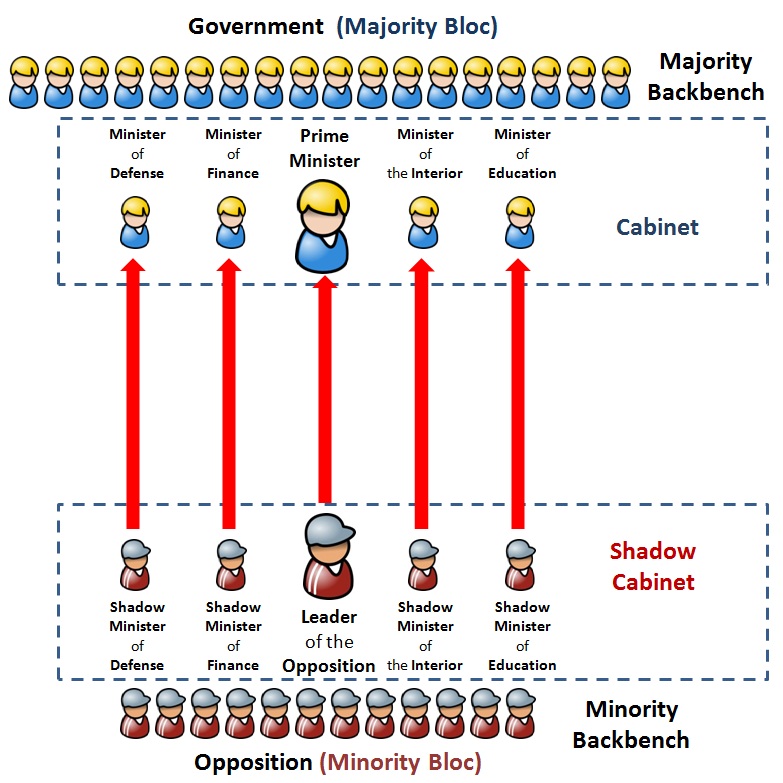
In a Parliamentary System, the competition between the Opposition versus Government during parliamentary debates ensures that the Government is on its toes
Every week, the Leader of the Opposition grills the Prime Minister during the PM’s Question Period on decisions, project outcomes, and issues of budget expenditiure, while the Shadow Minister for Education grills the Minister for Education on anything pertaining to the Ministry of Education, and so on and so forth… This system keeps the Government on its toes and forces them to keep themselves clean and above-board. Any anomalous transactions can easily be exposed as the Opposition is always watching whatever the Government does and raises questions every week.
No wonder Parliamentary Systems are leaner, more efficient, and less prone to Corruption than Presidential Systems.
In summary, here are just a few of the many major advantages that shifting to the Parliamentary System will bring to the Philippines:
-
- Better quality & highly competent leaders
- Greater transparency as the Opposition can question the Government during the numerous Question Periods and parliamentary debates.
- Greater efficiency as there is no gridlock to speak of
- Ease of getting rid of lousy leaders instantaneously
- Greater political stability as there is no gridlock
- Better policy-consistency as executive and legislative are fused
- Superior check and balance as the Shadow Cabinet regularly scrutinizes the Government’s Cabinet and their decisions and actions.
Moreover, there is no equivalent concept of the PDAF in most Parliamentary Systems. It’s interesting to note that the term “Pork Barrel” has its origins as an American term and is associated primarily with the Presidential System.
Parliamentary: NO GRIDLOCK; SUPERIOR GOVERNANCE
Bottomline: Since Parliamentary Systems fuse the legislature and executive together and thus do not have gridlock, then there would be no need for a Pork Barrel fund to entice the legislature to cooperate with the executive.
We must address Root Causes, not just Symptoms
One totally disappointing recurring theme in Philippine Society is the overwhelming focus that Filipinos have in merely addressing symptoms, but not going deep enough to hit the root causes of a particular “disease” or problem.
Agitating for the abolition of the Pork Barrel or PDAF is a good start. But it should not end there. Abolishing the Pork Barrel because of the harmful side-effects of corruption it causes upon society will not work if the reasons for why the Pork Barrel was made to exist continue to be present.
To use an analogy, imagine that you are taking a pill that is supposed to solve a particular symptom you are experiencing. However, taking that pill gives you rashes, although it does solve – to an extent – that other symptom you originally had. But now, the rashes are getting to you, and you feel that it’s not worth the trouble. So you stop taking the pill. Unfortunately, that other symptom re-emerges. You got rid of the rashes, but the old symptom that the pill addressed of has returned.
Perhaps it is time to take a big picture view of what could be the root cause of that symptom. Is it a disease? Is it poor hygiene? Poor health? Well, if you are able to get to the root, then you may end up getting rid of the symptom without even needing to take that pill that causes rashes.
That’s the same thing as the pork barrel. The Pork Barrel fund was meant to “solve” a few problems. But the Pork Barrel has a lot of totally harmful side-effects. Does getting rid of the pork barrel alone work? Obviously not. We need to get rid of the reasons why the pork barrel was thought of as a palliative “quick-fix” in the first place.
Going back to the health analogy, for many people, simply exercising, eating well (having fruit / vegetables / avoiding too much fat), not smoking, drinking lots of water, sleeping well, and just keeping healthy are enough to avoid many health problems that affect many people. Being healthy often means not being prone to disease which often requires people to take medicines which could have other undesirable side effects. In short, being less disease-prone means having less need to pop pills, and thus not have to endure their side-effects.
That’s what the Three Point Agenda described above is all about. We should get to the roots of our problems instead of just ignoring them and using band-aid “quick-fixes” merely attempt to suppress the surface-symptoms but also often end up having serious side-effects. Because those side-effects will prompt us to find other band-aid quick-fixes to fix those side-effects and they too will have their own side-effects, and so on and so forth. Instead, by getting down to the root cause(s), we eliminate (or at least reduce) the need for quick fixes in the first place, so we won’t need to experience their harmful side-effects.
Do we really want a truly better country? Then let’s not just look at symptoms. Let’s seek to truly solve the problems of the country by looking at the bigger picture. Let’s not just stick to the surface. Let’s all dig deeper, and solve root causes. Fix the system, all 3 aspects of it.
These three are what we need in order to totally eliminate the need for the Pork Barrel once and for all:
(1) Economic Liberalization, (2) Evolving Federalism, (3) Parliamentary System
CoRRECT™ the Constitution!
* * *
About the Author
 Orion Pérez Dumdum comes from an IT background and analyzes the Philippine situation the way he analyzes IT systems: logically and objectively.
Orion Pérez Dumdum comes from an IT background and analyzes the Philippine situation the way he analyzes IT systems: logically and objectively.
Being an Overseas Filipino Worker himself, he has seen firsthand how the dearth of investment – both local and foreign – is the cause of the high unemployment and underemployment that exists in the Philippines as well as the low salaries earned by people who do have jobs.Being Cebuano (half-Cebuano, half-Tagalog), and having lived in Cebu, he is a staunch supporter of Federalism.
Having lived in progressive countries which use parliamentary systems, Orion has seen first hand the difference in the quality of discussions and debates of both systems, finding that while discussions in the Philippines are mostly filled with polemical sophistry often focused on trivial and petty concerns, discussions and debates in the Parliamentary-based countries he’s lived in have often focused on the most practical and most important points.
Orion first achieved fame as one of the most remembered and most impressive among the winners of the popular RPN-9 Quiz Show “Battle of the Brains”, and got a piece he wrote – “The Parable of the Mountain Bike” – featured in Bob Ong’s first bestselling compilation of essays “Bakit Baligtad Magbasa ng Libro ang mga Pilipino?” He is the principal co-founder of the CoRRECT™ Movement and spearheads the campaign to inform the Filipino Public about the urgent need for Constitutional Reform & Rectification for Economic Competitiveness & Transformation.



 I believe: This is a CoRRECT™ Video with a very positive message
I believe: This is a CoRRECT™ Video with a very positive message Walang Natira: Gloc-9's MTV Rap about the OFW Phenomenon
Walang Natira: Gloc-9's MTV Rap about the OFW Phenomenon









